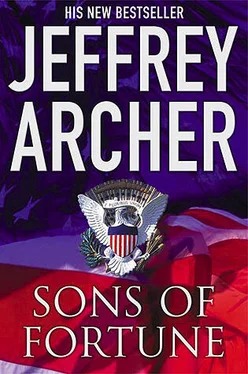Professor Karl Abrahams stood in front of his desk for the fifth lecture of the term and stared up at the semicircle of tiered seats that rose above him.
He began his lecture, not a book, not a file, not even a note in front of him, as he took them through the landmark case of Carter v Amalgamated Steel .
‘Mr Carter,’ began the professor, lost an arm in an industrial accident in 1923, and was sacked without receiving a cent in compensation. He was unable to seek further employment, as no other steel company would consider offering work to a one-armed man, and when he was turned down for a job as door-keeper at a local hotel, he realized that he would never work again. There wasn’t an Industry Compensation Act until 1927, so Mr Carter decided to take the rare and almost unheard of step at that time of suing his employers. He wasn’t able to afford a lawyer — that hasn’t changed over the years — however, a young law student who felt that Mr Carter had not received fair recompense volunteered to represent him in court. He won the case and Carter was awarded one hundred dollars in compensation — not a large amount for such a grievance you might well feel. However, together these two men were responsible for bringing about a change in the law. Let us hope that one of you might at some time in the future cause the law to be changed when faced with such an injustice. Subtext, the young lawyer’s name was Theo Rampleiri. He only narrowly avoided being thrown out of law school for spending too much time on the Carter case. Later, much later, he was appointed to the Supreme Court.’
The professor frowned. ‘Last year General Motors paid a Mr Cameron five million dollars for the loss of a leg. This was despite the fact that GM was able to prove that it was Mr Cameron’s negligence that was the cause of the injury.’ Abrahams took them through the case slowly, before adding, ‘The law so often is, as Mr Charles Dickens would have us believe, an ass, and perhaps more important, indiscriminately imperfect. I have no brief for counsel who look only for a way around the law, especially when they know exactly what the Senate and Congress intended in the first place. There will be those amongst you who forget these words within days of joining some illustrious firm, whose only interest is to win at all costs. But there will be others, perhaps not so many, who will remember Lincoln’s dictum, “let justice be done”.’ Fletcher looked up from his notes and stared down at his mentor. ‘By the time we next meet, I expect you to have researched the five cases that followed Carter versus Amalgamated Steel, through to Demetri versus Demetri, all of which resulted in changes in the law. You may work in pairs, but not consult any other pair. I hope I make myself clear.’ The clock struck eleven. ‘Good morning, ladies and gentlemen.’
Fletcher and Jimmy shared the work load as they trawled through case after case, and by the end of the week, they had found three that were relevant. Joanna pulled from the recesses of her memory a fourth that had been heard in Ohio when she was a child. She refused to give them any more clues.
‘What does love, honour and obey mean?’ demanded Jimmy.
‘I never agreed to obey you, freshman,’ was all she said, ‘and by the way, if Elizabeth wakes up during the night, it’s your turn to change her diaper.’
‘ Sumner versus Sumner, ’ Jimmy told her triumphantly as he slipped into bed just after midnight.
‘Not bad, freshman, but you still have to find the fifth by ten o’clock on Monday if you’re hoping to get a smile out of Professor Abrahams.’
‘I think we’d have to do a whole lot more than that to move the lips on that block of granite,’ said Jimmy.
As Nat climbed the hill, he spotted her running ahead of him. Nat assumed he would pass her on the downward slope. He checked his watch as he reached the half-way mark. Seventeen minutes and nine seconds. Nat felt confident that he would break his personal best, and be back on the team for the first meet of the season.
He felt full of energy as he surged over the brow of the hill and then he swore out loud. The stupid woman had taken the wrong path. She had to be a freshman. He began to shout at her back, but she didn’t respond. He cursed again, changed direction and chased after her. As he came bounding down the slope, she suddenly turned and looked startled.
‘You’re going the wrong way,’ shouted Nat, ready to turn and quickly retrace his steps, but even at twenty yards he wanted to take a closer look. He jogged quickly up to her, and kept running on the spot.
‘Thank you,’ she said, ‘it’s only my second time on the course, and I couldn’t remember which path to take at the top of the hill.’
Nat smiled. ‘You have to take the smaller path; the wider one leads you into the woods.’
‘Thank you,’ she repeated, and began running back up the hill without another word.
He chased after her, and once he had caught up jogged by her side until they reached the top. He waved goodbye once he was certain she had returned to the straight and narrow. ‘See you later,’ he said, but if she replied, Nat didn’t hear her.
Nat checked his watch as he crossed the finishing line. Forty-three minutes, fifty-one seconds. He cursed again, wondering how much time he’d lost re-directing the wrong-path woman. He didn’t mind. He began to warm down, and took longer over his stretching exercises than he normally would have done, as he waited for the young woman to return.
Suddenly she appeared at the top of the hill, running slowly down towards the finishing line. ‘You made it,’ Nat said with a smile as he jogged over to join her. She didn’t return his smile. ‘I’m Nat Cartwright,’ he said.
‘I know who you are,’ she replied curtly.
‘Have we met before?’
‘No,’ she said, ‘I know you only by reputation.’ She jogged off in the direction of the women’s locker room without offering any further explanation.
‘Stand up those who managed to find all five cases.’
Fletcher and Jimmy rose triumphantly, an emotion that deflated when they discovered at least seventy per cent of the class were also on their feet. ‘Four?’ said the professor trying not to sound too disdainful. Most of those remaining rose, leaving around ten per cent still seated. Fletcher could only wonder how many of them would complete the course. ‘Sit down,’ he said. ‘Let us begin with Maxwell River Gas versus Pennstone ; what change in the law came about because of that particular case?’ He pointed to a student in the third row.
‘In 1932 it became the company’s responsibility to ensure that all equipment complied with safety regulations, and all employees understood any emergency procedure.’ The professor moved his finger on.
‘Any written instructions had to be posted where every employee could read them.’
‘When did that become redundant?’
The finger moved again, another voice, ‘ Reynolds versus McDermond Timber .’
‘Correct.’ The finger moved again. ‘And why?’
‘Reynolds lost three fingers when cutting a log, but his defence counsel was able to show he couldn’t read, and had not been given any verbal instruction on how to operate the machine.’
‘What was the basis of the new law?’ The finger moved again.
‘The Industry Act 1934, when it became an employer’s responsibility to instruct all staff, verbally and in writing, how to use any equipment.’
‘When did that need further amendments?’ Someone else was selected.
‘ Rush versus the government .’
‘Correct, but why did the government still win the case despite being in the wrong?’
Читать дальше












